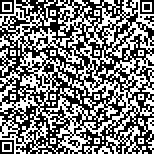| Quote
: |
王竹葳, 孙圣楠, 叶飞, 夏伟娜, 白俊杰, 廖兴徐, 扎西东智, 王坤, 杜庆红, 徐雅.自拟益气止咳方对肺脾气虚证大鼠的药效及其机制[J].湖南中医药大学学报英文版,2024,44(10):1764-1770.[Click to copy
] |
|
| |
|
|
| This paper
:Browser 2009times Download 1222times |
| 自拟益气止咳方对肺脾气虚证大鼠的药效及其机制 |
| 王竹葳,孙圣楠,叶飞,夏伟娜,白俊杰,廖兴徐,扎西东智,王坤,杜庆红,徐雅 |
| (北京中医药大学中医学院, 北京 100029;北京中医药大学东方医院, 北京 100078;西藏金哈达药业有限公司, 西藏 拉萨 100037) |
| 摘要: |
| 目的 探索自拟益气止咳方对肺脾气虚证大鼠的影响及其机制。方法 将60只SPF级健康SD雄性大鼠随机分为正常组(n=12)和造模组(n=48),造模组以脂多糖气管滴注加烟熏建立肺气虚证模型,烟熏2周后番泻叶灌胃建立脾气虚证模型。4周后,造模组大鼠随机分为模型组(灌胃等体积生理盐水)、阳性对照组(灌胃香砂六君子丸混悬液2.7 g/kg)及益气止咳方低、高剂量组(灌胃益气止咳方药液2.45、9.8 g/kg),每组12只,均灌胃治疗4周。治疗结束后,称量大鼠体质量;检测抓力观察大鼠肌肉力量;HE染色观察大鼠肺和胃组织病理改变;磷钼酸比色法检测肺、胃、股四头肌组织中腺嘌呤核苷三磷酸(adenosine triphosphate, ATP)含量;ELISA法检测肺和胃组织中炎症因子肿瘤坏死因子-α(tumour necrosis factor-α, TNF-α)和白细胞介素-8(interleukin-8, IL-8)的含量。结果 与正常组比较,模型组大鼠体质量、抓力均降低(P<0.01或P<0.05);肺组织小支气管管壁充血、炎症细胞浸润,黏膜上皮细胞纤毛粘连、倒伏,甚或脱落,管腔内有炎性渗出物,胃黏膜出现腺体排列不规则、炎症细胞浸润等现象;肺、胃和股四头肌组织中ATP含量降低(P<0.01);肺和胃组织中TNF-α和IL-8含量升高(P<0.01)。与模型组比较,益气止咳方低、高剂量组大鼠体质量和抓力增加(P<0.01);肺组织中炎症细胞浸润改善,管壁增厚减轻,炎性渗出物及充血减轻,胃组织中腺体层数增加,排列较整齐,炎症细胞浸润减少;肺、胃和股四头肌组织中ATP的含量增加(P<0.01或P<0.05),肺和胃中TNF-α和IL-8的含量减少(P<0.01)。结论 自拟益气止咳方能有效改善肺脾气虚证大鼠的临床症状,其机制可能与抑制炎症反应、促进ATP合成有关。 |
| 关键词: 益气止咳方 肺脾气虚证 药效 炎症 藏医药 |
| DOI:10.3969/j.issn.1674-070X.2024.10.007 |
| Received:May 14, 2024 |
| 基金项目:西藏自治区科技计划重点研发计划项目(XZ202201ZY0019G);西藏自治区教育厅项目(90020171720022)。 |
|
| Efficacy and mechanism of self-drafted Yiqi Zhike Formula on rats with lung and spleen qi deficiency pattern |
| WANG Zhuwei, SUN Shengnan, YE Fei, XIA Weina, BAI Junjie, LIAO Xingxu, ZHAXI Dongzhi, WANG Kun, DU Qinghong, XU Ya |
| (School of Chinese Medicine, Beijing University of Chinese Medicine, Beijing 100029, China;Dongfang Hospital of Beijing University of Chinese Medicine, Beijing 100078, China;Xizang Golden Khada Pharmaceutical Co., LTD, Lhasa, Xizang 100037, China) |
| Abstract: |
| Objective To explore the effects and mechanism of a self-drafted Yiqi Zhike Formula (YQZKF) on rats with lung and spleen qi deficiency pattern. Methods Sixty SPF-grade healthy SD male rats were randomly divided into normal (n=12) and modeling groups (n=48). In the modeling group, the lung qi deficiency model was established by intratracheal lipopolysaccharide (LPS) instillation with fumigation, and then the spleen qi deficiency model was established by intragastric administration of Fanxieye (Sennae Folium) after two weeks of fumigation. After four weeks, the rats in the modeling group were randomly subdivided into model group (gavage with normal saline of equal volume), positive control group (gavage with Xiangsha Liujunzi Pill Suspension 2.7 g/kg), and low- and high- dose YQZKF groups (gavage with YQZKF solution 2.45 and 9.8 g/kg), with 12 rats in each group. All rats were treated by gavage for four weeks. At the end of the treatment, the body mass of the rats was weighed; the muscle strength of rats was observed by detecting the grip force; HE staining was used to observe the histopathological changes in the lung and stomach tissues of rats; phosphomolybdic acid colorimetric assay was used to determine the content of adenosine triphosphate (ATP) in the lungs, stomach, and quadriceps tissue, and ELISA was used to test the levels of inflammatory factors tumour necrosis factor-α (TNF-α) and interleukin-8 (IL-8) in the lung and stomach tissues. Results Compared with the normal group, the body weight and grip strength of rats in model group were lower (P<0.01 or P<0.05). In the lung tissue, the small bronchial walls exhibited congestion, inflammatory cell infiltration, and the ciliated epithelial cells showed adhesion, lodging, or even detachment of cilia, with inflammatory exudates present in the lumens. The gastric mucosa showed irregular arrangement of glands and inflammatory cell infiltration. Additionally, ATP content decreased in lung, stomach, and quadriceps tissues (P<0.01 or P<0.05), while TNF-α and IL-8 levels increased in lung and gastric tissues (P<0.01 or P<0.05). Compared with the model group, the body mass and grip strength of rats in the low- and high- dose YQZKF groups increased to different degrees (P<0.01 or P<0.05); the inflammatory cell infiltration in the lung tissue was reduced, with reduced wall thickening, decreased inflammatory exudates and congestion; in the gastric tissue, the number of glandular layers increased, arranged more neatly, and inflammatory cell infiltration decreased. The ATP content increased in the lung, gastric, and quadriceps muscle tissues (P<0.01 or P<0.05), while the levels of TNF-α and IL-8 decreased in the lung and stomach (P<0.01). Conclusion Self-drafted YQZKF can effectively alleviate the clinical symptoms of rats with lung and spleen qi deficiency pattern, and its mechanism may be related to inhibition of inflammatory response and promotion of ATP synthesis. |
| Key words: Yiqi Zhike Formula lung and spleen qi deficiency pattern efficacy inflammation Tibetan medicine |
|

二维码(扫一下试试看!) |
|
|
|
|


